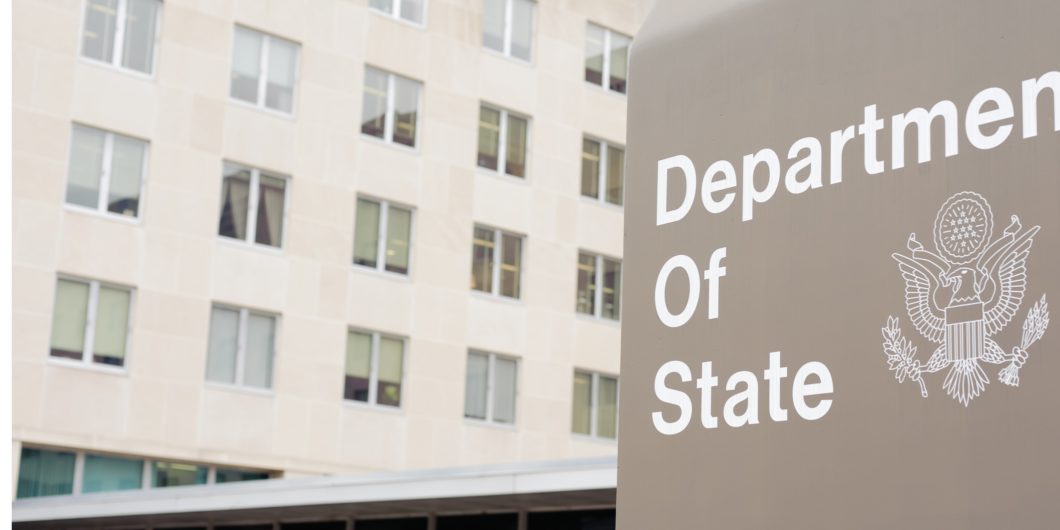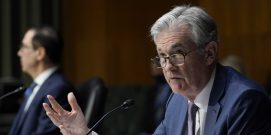Do Korean "K-dramas" signal the weakening of America's global cultural dominance?
U.S. Foreign Policy: More of the Blob?
“The more I think about the Ford Administration, the more it seems I remember nothing”
–John Updike, Memories of The Ford Administration (1992)
Michael O’Hanlon’s new book, The Art of War in an Age of Peace: U.S. Grand Strategy and Resolute Restraint, is very good, perhaps brilliant. It makes a lucid case for the pragmatic application of American power during the coming decades and should appeal to policymakers on both sides of the political divide. It is “small-c-conservative” in its approach arguing for both prudence and principles and a series of policies that are evolutionary, not revolutionary. Unlike many recent books, it strikes a fair balance between optimism and cynicism, neither ignoring the significant American strengths nor dismissing the significant challenges which lie ahead. In short, the book argues for a pragmatic application of American power. America should honor its commitments overseas, avoid entrapment by our allies and the temptation to retrench and work to maintain the system of liberal order that it built after the end of World War II.
As a reviewer, I have very little to say that is negative about this book. I agree with 95% or more of the arguments O’Hanlon advances. I would assign the book for one of my American Foreign Policy classes. I recommend it for both general and academic audiences. I can say without any irony or peevishness that this is an excellent book.
However, I learned something about myself and American Foreign Policy that was truly unexpected and unintended while reading it. I learned that despite reading hundreds of similar books over the past three decades, I remembered very little about them. Sure, I remembered the fact that I liked some more than others. Some were better written or argued. Some were by more famous authors (not that this necessary made them better, and in fact, there may be an inverse correlation between fame and skill as a writer now that I think of it). Some were quickly overtaken by events. Some were clearly written by partisan hacks. None were truly memorable.
I realized that reading American Foreign Policy books is something akin to a blind taste test in the bottled water aisle in the supermarket. I think I prefer the store brand because it appeals to my inherent cheapness but I “like” the “taste” of Dasani better. Who knows? And do I really care? This is bottled water after all!
But American Foreign Policy is not bottled water. It matters. It literally impacts the lives of billions of souls around the world and should be anything but bland. Yet, like the fictional protagonist Alf Clayton in John Updike’s brilliant, Memories of the Ford Administration, I really do not remember much about what I have read or witnessed.
What I mean is that with very few exceptions, American Foreign Policy books have been bland and predictable. So much so, that with the exception of the paleoconservatism of Andrew Bacevich, the strident idealism of Robert Kagan and Bill Kristol in the 90s and early 00’s, or the marketing genius of Joe Nye to write the same book about “soft” “smart” “something” power five or more times, I really do not remember much of what I read. My bookshelves are filled with an imposing number of volumes which should do more than dazzle the occasional guest to my office and impressionable undergrad. However, the connections in my brain cells are a mush of overcooked spaghetti noodles where no clear distinction can be made between where one thread of argument ends and another begins.
I always hated the term, “the blob,” which was used to describe the largely incestuous collection of foreign policy professionals who ran things. The term struck me as imprecise, politically loaded, and quite frankly offensive. I therefore refused to use it or even consider it properly. While I had lived and worked in Washington D.C. long enough to have plenty of stories, I simply did not consider it until about halfway through O’Hanlon’s book. Then the thought hit me, this is a book by, for, and about the blob.
The result of blob-dominated foreign policy is surprisingly conservative. Predictable—dare I say, Burkean?—policies, which are evolutionary, not revolutionary are truly the good, true, and beautiful for the center-left policy elite.
On the most basic level, the people who get contracts to write these books are typically seasoned writers, with largely homogeneous backgrounds where they successfully navigated between policymaking and academics, picking up credentials, connections, and credibility along the way. These people know each other, are part of a truly elite club, and despite their differences in gender, skin color, or national origin, often think and act in a manner that is anything but diverse. Few knew hard times, few served in the military, few truly have new ideas or the courage to question the system. The same can be said for those who purchase, read, assign, or review these types of books. It is a bubble, or a blob, or an echo chamber, or whatever term you choose.
The blob is real. So much so that this book reads like a long policy memo from a generic centrist administration. For example, the “hottest take” would be to support allies, but not in a manner that is so unconditional that they entrap the United States and lure us into unnecessary wars. This is perfectly good advice―prudent even, but hardly earth-shattering or novel.
A second unexpected insight takes me back two decades ago, when I was a graduate student reading about the status quo bias in international relations. As a product of my training, I accepted this as a flaw, but an understandable one for international relations theory. I took it for granted that most things did not change much (until they did) and that broad trends such as alliances, global power distribution, and economics were likely to continue. Except for those rare paradigm-shifting moments like World War II, the collapse of the Soviet Union, 9/11, and COVID-19, things pretty much continued grinding along on a predictable trajectory. The safe bet is to predict that the future will look much like the present. To deal in a tautology that is simultaneously profound and banal: Safe bets are in fact safe.
After reading this book, am I increasingly sure that the status quo bias is alive and well―and for good reason. Despite the four-year “stress test” of the Trump presidency, very little actually changed, at least on the macro level. Europe did not fall to the Russians, Iran has not vaporized Israel, the Korean Peninsula is peaceful despite technically being at war, and climate change has yet to be addressed in any meaningful manner.
As O’Hanlon correctly points out, the histrionic style of the Trump Administration aside, the underlying substance of American hegemony has remained largely unchanged. America is still first because it never stopped being so. America did not need to be made great again, because it was the greatest single power in the world. While a parade of horrible things could potentially occur, O’Hanlon (like the majority of the blob) is wise to insist that prudent management will likely ensure that America will retain its privileged place at the top of the global order for years to come. I guess I always knew that this was true, but now I know that this is true.
Now that I am comfortable using the term “the blob,” I can discuss my third unexpected insight: the blob is small-c-conservative. Foreign policy is generally run by a set of elites that would most often describe themselves politically as center-left, and they tend to support center-left politicians and policies because they have had decades of education, experience, and socio-economic conditioning that tells them to do just that. Yet, on a more individual level, these same people tend to be much more conservative in their own private affairs and their specific policy recommendations are essentially conservative.
While I cannot “prove it,” I truly believe that the net effect of the blob and its status quo bias is that these center-left policy elites are very careful to not upset the existing power structures. While they may support more progressive policies in the domestic arena, they speak and act very much like prudent conservatives in the international arena. Indeed, a system that benefits America disproportionately is worth maintaining, even if it is unfair to others, tramples on other cultures, and ignores the niceties of human rights and international law.
The result is surprisingly conservative. Predictable—dare I say, Burkean?—policies, which are evolutionary, not revolutionary, are truly the good, true, and beautiful for the center-left policy elite. While this means maintaining an international order that is “liberal” and “internationalist,” that’s not the worst thing in the world: it means maintaining an order, after all. The net effect is prudent and conservative, even if those who typically practice and teach international affairs would quail at this conclusion.
In conclusion, O’Hanlon’s book succeeds on its own terms. It is a solid work in the American Foreign Policy genre, that does an excellent job of scoping the challenges facing the United States and proposing common-sense solutions. However, like a bottled water taste test, this book is bland. In this blandness, however, I found unexpected insight about much larger elements of foreign policy and America’s place in the world.
Blandness is in fact good, and Burkean, and in the best interest of America. America is privileged to be the strongest and most powerful nation on Earth, even if that produces boring books, boring people, and boring policies.
What is the alternative? Existential threat(s) which force unity of purpose? Now that is a truly scary thought. Unity of purpose means hotter wars or colder peace. The more memorable books are simply not worth that price. I will remember that unexpected lesson as well.



